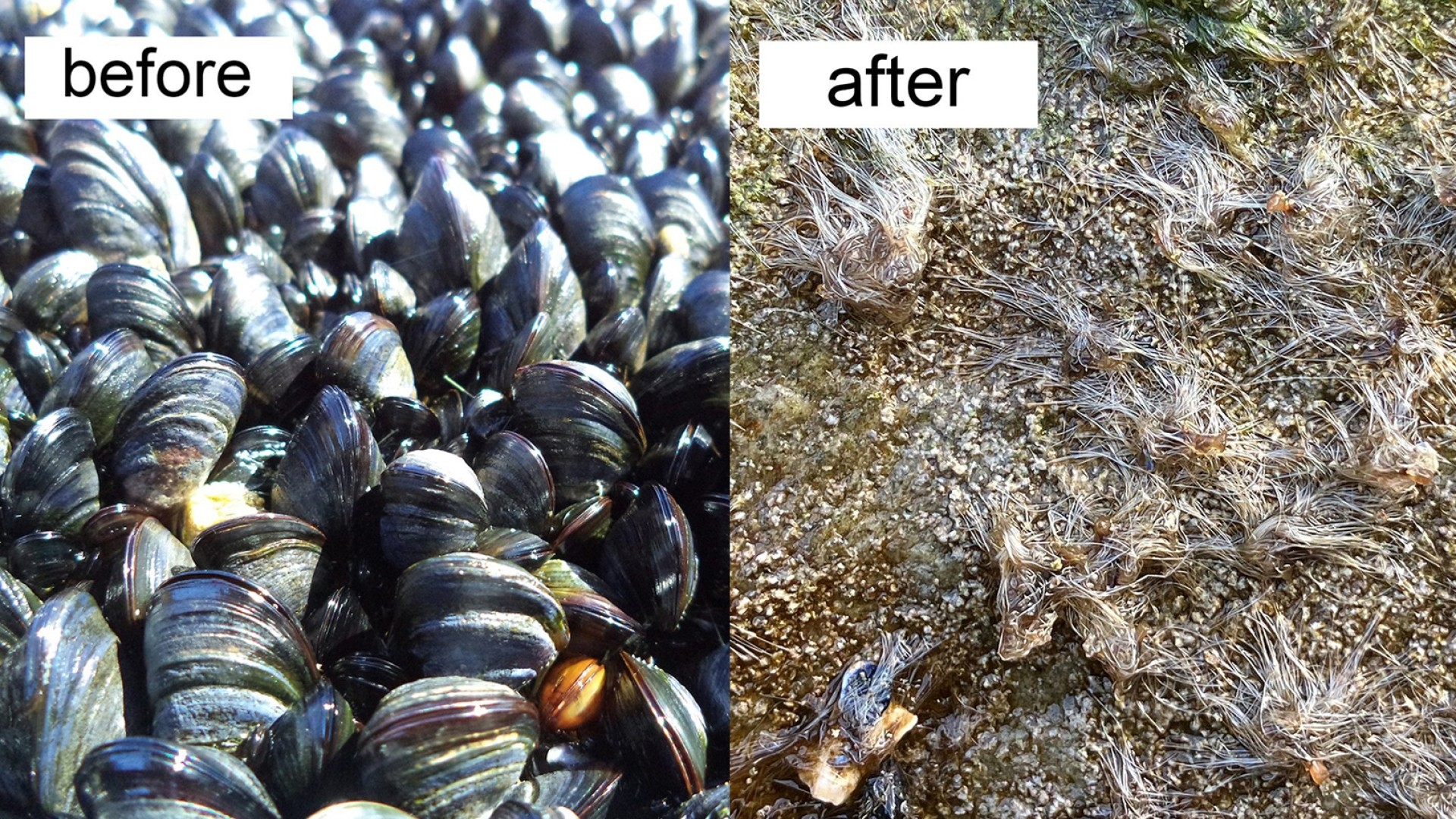
Field surveys just finished by StFX biology professor Dr. Ricardo Scrosati, who leads StFX’s Marine Ecology Lab, and M.Sc. biology student Nicole Cameron on Nova Scotia's south shore have revealed that intertidal mussel beds, once abundant on this coast, have largely disappeared.
This observation is supported by data measured at coastal locations spanning 160 km of shoreline, Dr. Scrosati says.
“Based on various lines of evidence, this unprecedented mass mortality appears to be a result of the severe cold snap of last February, as intertidal organisms get exposed to air temperatures during low tides.”
Years of previous work by StFX's Marine Ecology Lab and other labs in the province showed that, until this year, mussel beds were dominant in these intertidal habitats, hosting tens of species of small invertebrates and sustaining upper levels of the food chain, he said.
“Curiously, recent climate research suggests that the ongoing climate change, which involves warming when measured globally, will be associated to more frequent winter cold outbreaks in eastern North America. Therefore, it is unknown whether intertidal mussel beds will recover to levels seen before this cold snap, which could represent drastic changes for intertidal environments.”
Above, the left photo shows how intertidal mussel beds looked before February 2023, while the right photo (taken in April 2023) shows byssal threads still attached to the rocky substrate, the only sign that mussel beds ever existed there.
The findings have caught the attention of several news outlets, including:
* Saltwire article: https://www.saltwire.com/halifax/news/polar-vortex-may-have-wiped-out-s…
* CBC Radio interview: https://www.cbc.ca/listen/live-radio/1-38-maritime-noon/clip/15981791-r…
* CBC Nova Scotia News (Dr. Scrosati's interview starts after minute 35): http://www.cbc.ca/player/play/2200795715559

